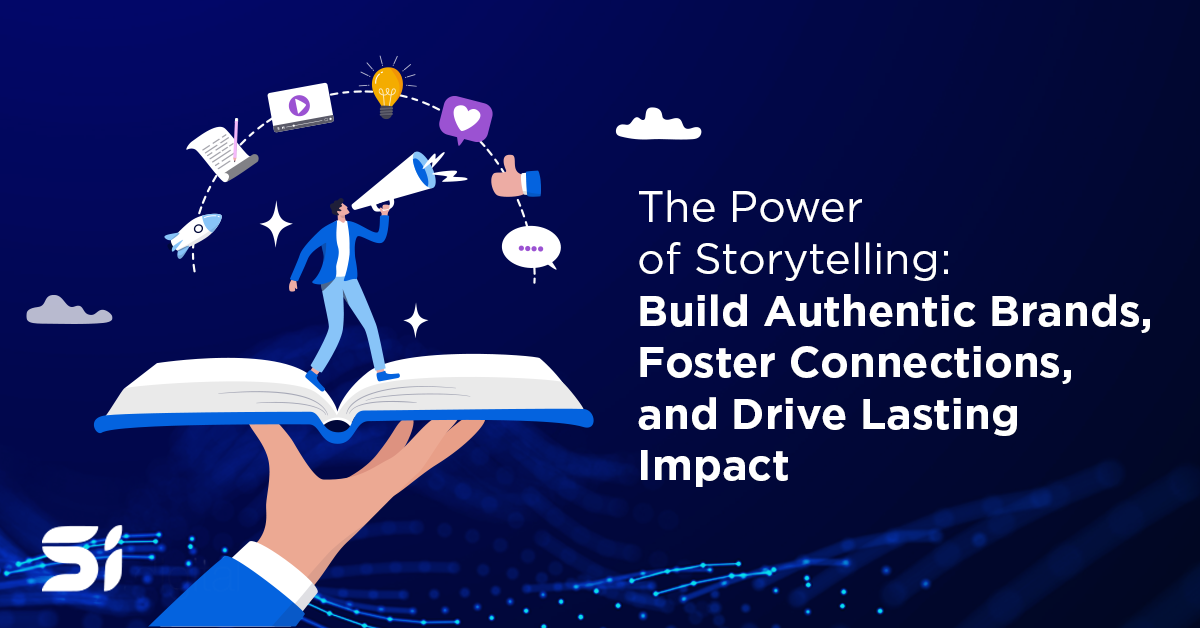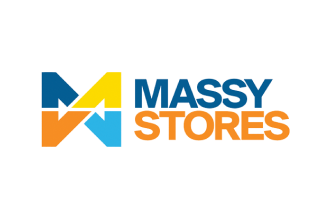Long gone are the days when marketers and marketing teams had to rely solely on traditional media, spending millions of dollars with the hopes that they’ll see a profitable return. With the introduction of digital marketing, businesses have more control than ever over how they reach their ideal audience while spending less money and seeing better results.
Though there are hundreds of tools and strategies to choose from, there are a few that every successful business needs to incorporate into its marketing plan. If your business isn’t leveraging one of these 6 trends, you’re likely leaving money on the table!
CONVERSION RATE OPTIMISATION
It costs money to get great results, but what if there were a way to increase your results while spending less? With conversion rate optimisation, you increase the percentage of conversions from your strategy and assets by analysing the performance of your marketing efforts on each channel. To see consistent results, you’ll need to continue to monitor performance while making improvements.
For instance, you noticed through A/B testing that when your landing page has a call-to-action button close to the top of the page, you get 30% more conversion than pages with the button at the bottom. Using that insight, you would then reposition your call-to-action buttons to increase your conversion rates. This principle also applies to all content, tag lines and captions.
Testing everything in your funnel can help you maximise your budget, allowing you to reduce your client acquisition cost. Your effort can then be focused on gaining more revenue from these existing clients or attracting new ones.
Consumers have become inundated with marketing messages, which is why the most successful companies incorporate this detailed thinking into their marketing plans. By consistently studying the performance of your campaigns, comparing across channels and making improvements, you’re better able to tailor your campaigns to appeal to your audience, giving you an edge over your competitors.
GOOGLE MY BUSINESS
Your next high-paying client is trying to find your business but can’t. Why? You haven’t yet established an online presence or made yourself easily accessible. One way to change this is by setting up an optimised Google My Business profile. This tool allows you to manage your presence across Google—from sharing contact details to answering questions and addressing complaints.
Google My Business is completely free to set up and allows you to gain valuable insight into your targets’ needs, manage your business’s reputation and assist with local SEO (see below) to increase your likelihood of being seen. Once your account is set up, you can run ads and drive traffic to your store or gather feedback from existing customers, which will increase your ranking.
SEARCH ENGINE OPTIMISATION
 The only way to grow your business is to get attention and if you’re online, the best way to do that is through search engine optimisation. SEO allows you to improve the quality and quantity of web traffic to your website from search engines. This can be done by using frequently searched terms (keywords) in your copy, creating high-quality content, adding links to your site that lead to other high-quality content, and being consistent with content updates.
The only way to grow your business is to get attention and if you’re online, the best way to do that is through search engine optimisation. SEO allows you to improve the quality and quantity of web traffic to your website from search engines. This can be done by using frequently searched terms (keywords) in your copy, creating high-quality content, adding links to your site that lead to other high-quality content, and being consistent with content updates.
Have you ever searched for bakeries that deliver and got a list of recommendations for ‘bakeries near you’? Those bakeries took advantage of local SEO, a wildly underutilised tool in the Caribbean. You have a unique opportunity to be one of the early adopters and outrank competitors by incorporating it into your digital strategy.
CUSTOMER DATA PLATFORMS, RELATIONSHIP & LOYALTY MANAGEMENT
Customer data is the lifeline of your business, but where many go wrong is focusing solely on building a large list of customer contact info without a plan to extend and merge this dataset with the many other customer data points and actions that happen every day. Business leaders now need to think of every interaction your customer has with your business as a new way to improve your relationship.
One way to do that is through a sound loyalty strategy and Customer Data Platform (CDP). With this, you can enhance customer relationships and your businesses can manage automated and personalised interactions with customers, using data gathered from them. Your CDP/loyalty technology stack should be a centralised place for all data on customers, not just contact details. This includes information on past purchases, the time between purchases, what was purchased, demographic profiling, and other details such as what web pages they visited on your website, how long they spent browsing, and what social channels they follow you on.
The more data you gather, the more you can add to their customer profile and begin to improve your interactions. The aim is to provide value to them in a way that meets their specific needs. One effective tool you can use to do this is a loyalty programme.
If a member of your loyalty programme purchases a bottle of wine, you can go beyond offering points and also offer them information or deals via email about what pairs well with that wine, or prompt them to purchase your wine glasses. You want them to know that you see and understand them. The results from these investments can be between 3x and 15x efficiency on marketing spend as well as happy customers with extensive Customer Lifetime Value (CLV).
Of course, to do this manually would be a very tedious process, and that is where software and automation come in. To make customer relationship management more seamless, you need to use software that can automatically manage marketing processes and communication. You can send automated text messages, emails, web prompts or social media messages.
The right tool can go further to do lead scoring, offer points, and assign a value to your customers based on how they interact with your content. The more they interact, the more interested they are, moving them from being a cold lead who is unlikely to purchase to one who is hot and ready to buy!
PAID SOCIAL MEDIA AD TARGETING
When most people think of digital marketing, they tend to think of social media, and for good reason. This is perhaps the most utilised form of digital marketing out there thanks to the numerous features offered by platforms and the reach potential. There are so many reasons your company needs to incorporate social media marketing into its plan, including:
- Wide reach: More than half of the world currently uses a form of social media—that’s more than 4 billion people from all demographics. Your market extends well beyond your country and social media marketing can help you reach it.
- Cost-effectiveness: Social media accounts are free to set up and social media ads cost less to run than traditional ads with better conversion rates.
- It allows for real-time communication: If you place an ad in the paper and someone has a question you’ll likely never hear it. Social media gives them direct access to you and answering that one question could help them make a decision in your favour.
- Measurable results: The key advantage to using digital tools is accountability for each action taken. While a media purchase on television, radio, or print may bring you an estimated reach count from a very motivated salesperson, these estimates are often impacted by lost mail, ads playing with no one around to hear them, and misidentified audiences. Digital marketing reduces these margins of error with extreme levels of tracking and reporting for each metric—with the bonuses of audience insights that savvy marketers use to optimise customer journeys.
Social media marketing goes beyond boosting a few posts per week. If your strategy isn’t well crafted, your followers will eventually stop interacting with your content. To avoid this, you need to consistently run social media growth ads to keep driving new eyes to your page and produce engaging content. Over time, these followers will become loyal supporters who will share your content or recommend you to friends, making it easier for new customers to find you. This requires a solid strategy and a team that understands the metrics that matter most to your business.
STRATEGIC, DATA-DRIVEN, EMAIL MARKETING
There’s a misconception that email marketing is no longer relevant due to spam filters. However, if you take a glance through your inbox right now, you’ll see that is not true. In fact, for every $1 a company spends on strategic email marketing, they make an estimated $36 in return. But what exactly is it and how does it differ from the everyday emails you might send?
For one, email marketing is now done through email marketing software like Mailchimp but is extended to other data systems that can enhance the outcomes. Unlike regular emails, the messages are more geared towards marketing and business objectives and can now be driven by customer data.
Well-executed email marketing is not a hard sell. You can add more value to your customer’s experience by sharing additional information, offering them a quick solution to a problem, and building thought leadership. Building a human interest connection is key to email marketing programme success. Your business only becomes irrelevant when your customers feel as though you add no value to their lives.
Once you have this foundation set, you’re likely to get sales from these leads, even if you don’t promote an offer. If you are consistent and creative, they will grow to know and trust you. And if you do push an offer, they’ll be more likely to take this up because of that connection you’ve built. As you learn what works, you can make improvements to your messages, execute A/B testing to increase your conversion rates, or implement content optimisation to get even greater returns.
THE RIGHT DIGITAL MARKETING PARTNER
Digital marketing is constantly evolving and if your plan isn’t moving with these tools, then your business is missing out. In 2022, you can’t be using a pre-pandemic approach to compete for market share. Consumers have changed and you must also evolve. To not evolve is to run the risk of wasting money on a strategy created for irrelevant metrics or one that just does not work. If these items are not high on your priority list, they are likely high on your competitors’!
For any business to be successful, it must understand that marketing is now not only theoretical but also technological, and the technology is constantly evolving. Much like Moore’s law, this evolution should be understood by your C-Suite and your marketing partners and should be a pillar of your marketing mindset. Failing to do this will stagnate marketing or could land you measuring the wrong KPIs for success.
Working with a team that embraces change, one that understands the importance of the approaches laid out above, and can translate its strategy to tangible outcomes is the best approach for optimising your digital marketing investments.
GLOSSARY:
Conversion: A specific customer action that you’ve defined as valuable to your business, such as an online purchase or phone call.
A/B Testing: A randomized experimentation process wherein two or more versions of a variable (web page, page element, etc.) are shown to different segments of website visitors at the same time to determine which version leaves the maximum impact and drives business metrics.
Funnel testing: A testing method that involves comparing not just two pages against each other, but multiple pages that are related and are all part of your sales funnel. Funnel tests or multi-page tests work similarly to A/B tests, but instead of changing only some elements of the control page, you create variations of all the original pages in your sales funnel.
Local SEO: The practice of optimising your website for a specific local area. If you have a local business, you want your web pages to rank for certain search queries performed by a local audience.
Technology stack: set of technologies that are stacked together to build any application, which has become essential for building easy-to-maintain, scalable web applications.
CLV: Customer Lifetime Value, a measurement of how valuable a customer is to your company, not just on a purchase-by-purchase basis but across the whole relationship.
Social media growth ads: Running paid advertisements on social media platforms.









"Si has demonstrated the capacity to manage and execute digital and media projects at a global standard."
Nestlé
Head or Corporate Communications - Caribbean